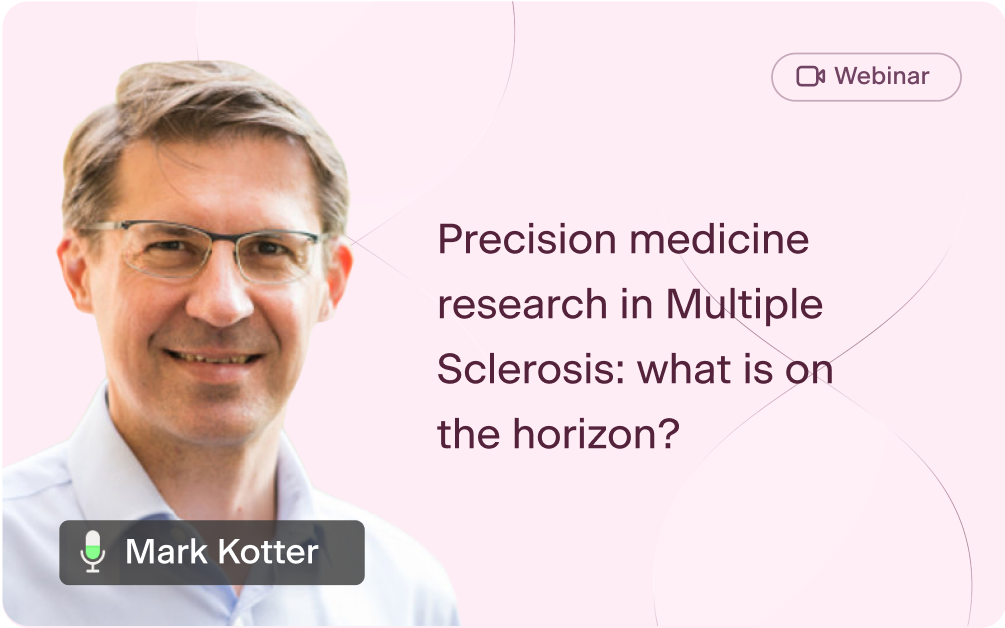Webinar recap: Precision medicine research in Multiple Sclerosis: what is on the horizon?

This webinar, hosted by Patrick Short, CEO of Sano Genetics, and featuring Dr. Mark Kotter, CEO of bit.bio, focused on precision medicine in multiple sclerosis. The conversation ranged from stem cells and the effect they can have on neurodegenerative disease like multiple sclerosis to the future of synthetic biology.
The link to the full webinar is here; a brief summary is below for easy reference.
About the speakers

Mark Kotter
CEO and founder of bit.bio, an award-winning human synthetic biology enterprise. Dr. Kotter specialises in creating precision-engineered human cells for basic research, drug discovery, and cell therapy applications. Dr. Kotter has a PhD in neuroscience and has also worked as an academic neurosurgeon at the University of Cambridge.
Highlights from the webinar
How is bit.bio’s technology driving precision medicine research forward?
The webinar began with the importance of precision medicine and the four Ps: prediction, prevention, more precise diagnosis, and more personalised and targeted interventions. Patrick emphasised the need to drive patient engagement in the research process and in healthcare delivery to ultimately make research and treatment more personalised.
Dr. Kotter then discussed bit.bio’s technology, which uses a reprogramming paradigm for health issues and allows for precision engineering of human cells. He explained how bit.bio's platform technology solves the bottleneck for many applications in medicine, from basic research to the drug development process to cell therapy. Using a gene targeting strategy, bit.bio can precisely engineer human cells and control gene regulatory networks to switch on and switch off genes in human stem cells.
Also discussed was bit.bio's differentiation protocol, which can take peripheral stem cells and reprogram them into neurons or other cell types. This protocol is much faster than traditional approaches and allows for the generation of consistent and mature cells. bit.bio's technology has already demonstrated superiority in preclinical large-scale applications, and the company is working towards clinical trials within the next three to four years.
How can this technology be applied to Multiple Sclerosis treatments?
The discussion then turned to MS and the unanswered questions surrounding the disease. Dr. Kotter highlighted the importance of remyelination or repair, which is an exciting area of research. He also discussed the potential for using bio.bio's technology to create oligodendrocytes, which are important for myelination in the central nervous system.
Patrick and Dr. Kotter also discussed the importance of patient engagement in the research process. They shared the results of a recent survey with around 1,500 users of the Sano platform with MS, which highlighted the differences in people's experiences and where they are in their journey. They emphasized the need to combine participant experiences with genomic and medical information to make research and treatment more personalized.
Summary
This webinar provided valuable insights into precision medicine research in MS and the potential of bit.bio's technology to create precision-engineered human cells. The discussion highlighted the importance of patient engagement in the research process and the need to fuse patient experience with genomic and medical information to drive precision medicine research forward.
